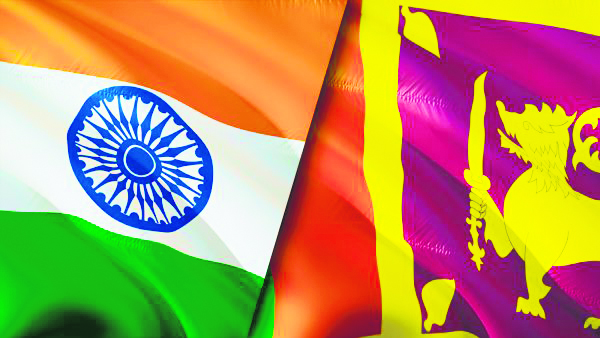
In what must have pressed alarm bells in the diplomatic establishment in New Delhi, Sri Lanka has paved the way for a $4.5 billion investment by China in Hambantota which also houses a port that was leased to a Chinese state-owned shipping company in 2017. The development is definitely a cause of concern for India as Beijing’s investment will be another route to be used by China to grow its influence in India’s strategic backyard.
Hambantota is the second largest port in Sri Lanka after Colombo, which has been jointly managed since 2017 through a partnership between the Sri Lankan Port Authority and China Merchant Ports, known as the Hambantota International Port Group. Interestingly, the port’s construction was initially funded through a commercial loan from the Exim Bank of China. Now, decks have again been cleared for another huge Chinese investment in this town in what is being seen as a clear signal about Beijing’s plan to implement its agenda of expanding influence in the Indian Ocean Region.
New Delhi sees Beijing’s assistance to Colombo as another means through which it is investing in deepening ties with the island nation. The international community witnessed how Sri Lanka joined the Chinese infrastructure financing project, Belt and Road Initiative (BRI) as part of which Beijing funded the development of Hambantota port in southern Sri Lanka. The port was taken over by China in 2017 after Sri Lanka failed to pay for its costs. It was all part of China’s plan to increase its presence in India’s neighbourhood.
What India should be wary of is that China might be focusing on increasing military presence in the region with the ulterior motive to conduct surveillance in the Indian Ocean Region and other important sea routes that pass through Hambantota port. Sri Lanka, which is already saddled with Beijing’s debt, won’t be able to reject China’s demands seeking to grow footprints in the region. Already, China keeps sending its “research” ships to Sri Lanka’s Colombo port despite protest from India. New Delhi has raised security concerns every time China proposed to send its ship to Sri Lanka. Recently, state-of-the-art Chinese research vessel, Shi Yan 6, docked at Colombo port and carried out scientific research off the Sri Lankan coast. With additional investment by China in Hambantota, such activities might be increased as Beijing’s economic investments can be used for geopolitical leverage.
Apart from this, a substantial million-dollar deal has also been struck for construction of a logistics and storage hub in Colombo port. This highlights the continued economic collaboration between China and Sri Lanka. China’s energy giant Sinopec will be establishing a new petroleum refinery plant at the strategic Hambantota port.
The ambitious project worth USD $4.5 billion is not just limited to refining but it also includes the establishment of an associated products training center, reflecting a comprehensive approach to capacity building and skill development. China already holds more than half of Sri Lanka’s $46 billion external credit. In a significant development in October, Sri Lanka reached an agreement with EXIM Bank of China to cover about $4.2 billion of its outstanding debt. India needs to persuade Sri Lanka not to fall prey to China’s lending practices to less affluent nations.
China’s policy has left the borrower countries struggling to repay debts and consequently more susceptible to pressure from Beijing. It is clear that Sri Lanka, which is facing a massive financial crisis, is fully aware of China’s debt trap tricks. Therefore, Colombo must avoid getting into another similar Chinese trick. India should also keep a close eye on Chinese investment in Sri Lanka.
New Delhi must also be watchful of how Beijing is going to use this as leverage for geopolitical purposes while trying to increase activities in strategic town Hambantota. Sri Lanka must also not allow Chinese vessels to dock at Colombo or any other of its ports. The Sri Lankan government must take into account the security concerns that are raised by India if China ramps up its activities in New Delhi’s strategic backyard.